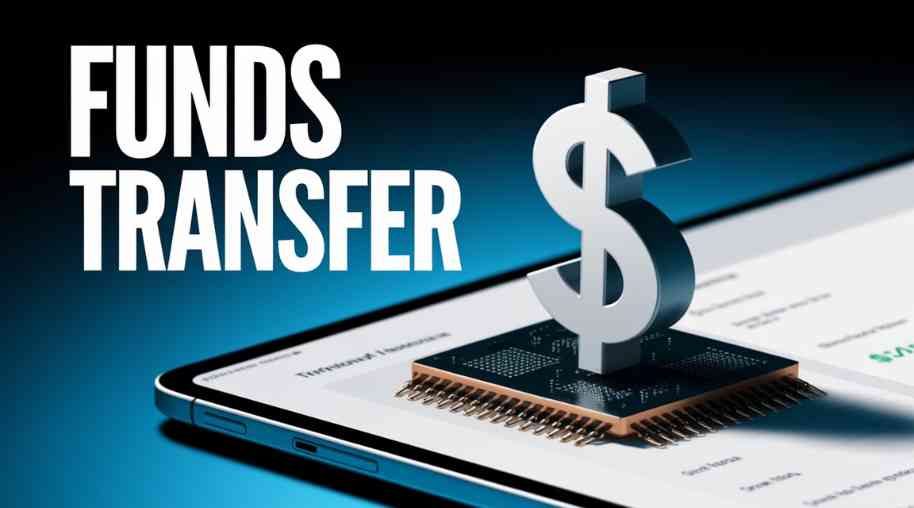FTS Full Form-Funds Transfer System
by Shashi Gaherwar
0 3110
Introduction
A Funds Transfer System (FTS) is a financial infrastructure that enables secure and efficient money transfers between individuals, businesses, and financial institutions. It is a cornerstone of the modern economy, ensuring quick and seamless domestic and international transactions. With the rise of digital banking and electronic fund transfers (EFTs), FTS has become essential. This article explores its key components, importance, benefits, and challenges.

What is a Funds Transfer System?
A Funds Transfer System (FTS) is a set of procedures and technologies that facilitate the movement of money. It encompasses electronic and manual methods for transferring funds securely across banking networks, ensuring compliance with financial regulations while minimizing risks and fraud.
Key Components of a Funds Transfer System
- Payment Processing Infrastructure: Relies on banking networks, clearinghouses, and digital payment gateways to facilitate transactions.
- Electronic Fund Transfers (EFTs): Includes methods like wire transfers, Automated Clearing House (ACH) transfers, and Real-Time Gross Settlement (RTGS) systems for rapid money movement.
- Security and Fraud Prevention: Employs encryption, two-factor authentication, and fraud detection algorithms to safeguard transactions.
- Regulatory Compliance: Adheres to legal frameworks and regulatory guidelines to ensure transparency and security.
- Integration with Banking Systems: Seamlessly connects with core banking systems for transfers between banks, financial institutions, and payment service providers.
Importance of a Funds Transfer System
- Enhances Financial Efficiency: Ensures quick and efficient money movement, reducing transaction delays.
- Improves Security and Fraud Detection: Minimizes risks of fraudulent activities and unauthorized access with stringent security protocols.
- Facilitates Global Transactions: Enables international wire transfers and cross-border payments for global trade and commerce.
- Supports Digital Banking: Drives online payments, mobile banking, and e-commerce transactions.
- Ensures Compliance and Transparency: Complies with regulations to prevent illegal financial activities and maintain transparency.
Types of Funds Transfer Systems
- Real-Time Gross Settlement (RTGS): Processes large-value transactions in real time for immediate fund transfers between banks.
- Automated Clearing House (ACH): Handles bulk payments like payroll and bill payments, ideal for businesses.
- Wire Transfers: Facilitates secure and fast transactions, commonly used for international transfers.
- Mobile Payment Systems: Platforms like UPI and digital wallets enable instant transfers via smartphones.
- Peer-to-Peer (P2P) Payment Systems: Platforms like PayPal and Venmo allow quick electronic money transfers.
Challenges in Implementing a Funds Transfer System
- Cybersecurity Threats: Digital transfers are vulnerable to hacking, phishing, and fraud.
- Regulatory Compliance: Requires constant updates to meet legal and financial regulations.
- Transaction Delays: Cross-border transactions may face delays due to banking procedures.
- Integration Issues: Ensuring connectivity between banking networks can be complex.
- User Authentication and Verification: Preventing unauthorized transactions requires advanced verification methods.
Future Trends in Funds Transfer Systems
- Blockchain-Based Transactions: Decentralized finance (DeFi) and blockchain enhance secure and transparent transactions.
- Artificial Intelligence in Fraud Detection: AI-powered systems detect suspicious activities in real-time.
- Faster Cross-Border Payments: Emerging technologies reduce delays in international transactions.
- Increased Adoption of Mobile Payments: Growing use of digital wallets and contactless payments.
- Advanced Encryption Technologies: Strengthens security for digital financial transactions.
A Funds Transfer System is vital for the financial ecosystem, ensuring secure, efficient, and transparent transactions. Innovations like blockchain and AI will further enhance the security and efficiency of FTS, shaping the future of digital banking and global finance.
Further Learning Resources
If you’re passionate about building a successful blogging website, check out this helpful guide at Coding Tag – How to Start a Successful Blog. It offers practical steps and expert tips to kickstart your blogging journey!
For dedicated UPSC exam preparation, we highly recommend visiting www.iasmania.com. It offers well-structured resources, current affairs, and subject-wise notes tailored specifically for aspirants. Start your journey today!

Share:








Comments
Waiting for your comments